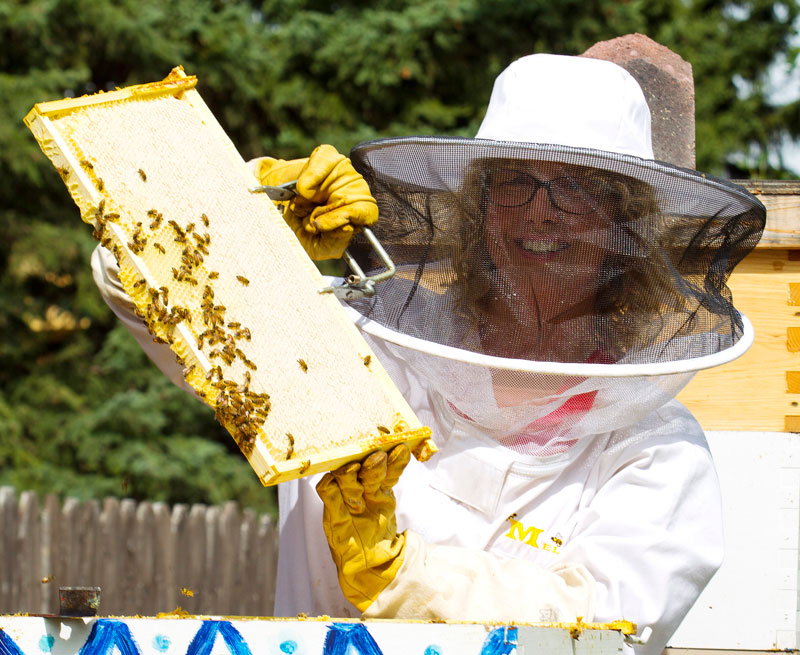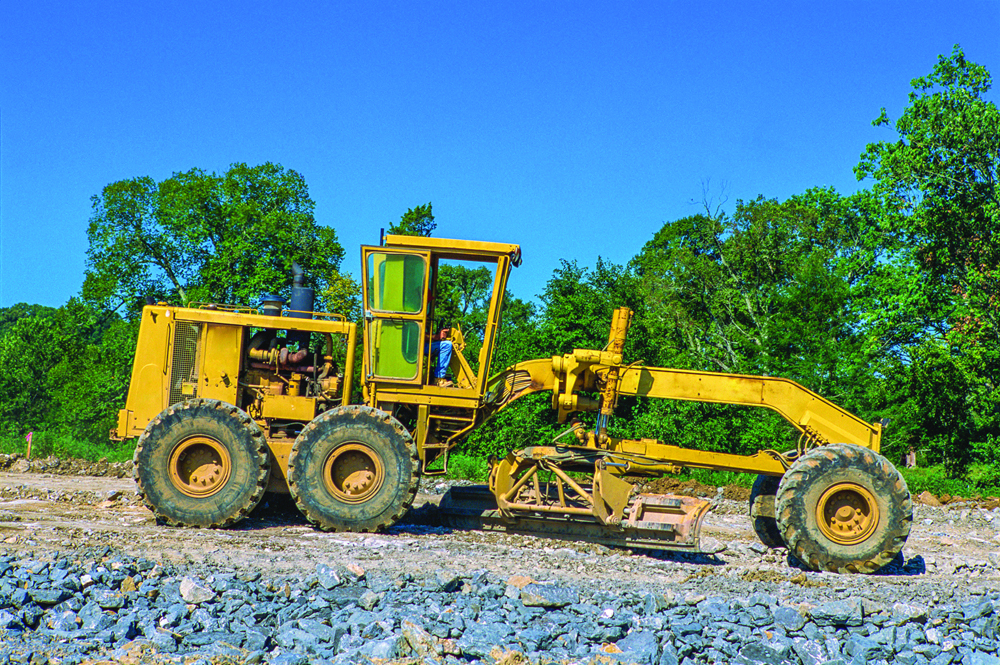
The City of Chestermere’s vision to promote the environment has been rewarded with its designation as a Bee City July 27.
“We’re happy we can bee all we can be,” said Mayor Patricia Matthews.
Chestermere Honey Bee Society founder and beekeeper Preston Pouteaux brought the Bee City initiative to council in March.
He continued to work with the bee city committee that was comprised of city staff and community members to bring Chestermere’s application to Bee City Canada.
“We got to take a look at the impact on the environment from a very small perspective that creates a very big ripple,” said Matthews of the application process.
Becoming a Bee City is a way for bees and other pollinators be brought to the forefront.
“Being a Bee City says that we value quality of life here…having a healthy space for us to raise families and enjoy each other as neighbours,” he said.
Chestermere is the second city in Canada after Toronto to get this designation.
“When a big group like Toronto crosses that threshold and says yes it actually makes it a lot easier for every other municipality to say…it might be good for our municipality too,” said Pouteaux.
The designation has to be renewed annually by Bee City Canada. One of the main requirements of the designation is to celebrate pollinator week in June every year.
Being a Bee City ties into Chestermere’s recreational oasis theme.
“It encourages green space and pollinator friendly habitats,” said local beekeeper Tracy Weicht.
Weicht said one of the most important things people can do to make their gardens more bee friendly is to use alternatives to chemical pesticides.
She also suggests creating habitats for mason bees.
“Honeybees are work…but things like the little bee hotels that you can put in your yard that are fun, and help out,” said Weicht.
Pouteaux recommends planting what he refers to as a year-round garden.
“Finding plants that are good in the spring and the summer and the fall provide forage for bees of all kinds,” he said.
This variety of plants ensures there are always plants that are flowering throughout the growing season. A quick google search or asking at the garden centre will let people know what will grow best in their yards.
“There are certain times if we all plant one thing it’ll flower and be done,” said Pouteaux.
Everyone in Chestermere can participate in creating bee and pollinator habitats whether they have a large garden or planter boxes on their condo’s patio.
“This is what makes this conversation about pollinator habitats so universal…you don’t have to be a beekeeper to make a beautiful place for bees,” said Pouteaux.
Trees are another important part of pollinator habitat and city initiatives like the birth forest play an important part in the creation of this habitat.
“We’re encouraging new developments to not just plant one tree in the front of every house but maybe consider planting more,” he said.
The success of being a Bee City will be measured in our neighbourhood connections said Pouteaux. If people focus on just their property they live as if it’s the only thing that exists he said.
“This bee conversation just helps lead people into a place where they’re able to see their neighbouhood anew,” said Pouteaux.
“When we see trees and plants and bugs and animals we begin to see that we’re part of an interconnected city and the way we engage with that city has an impact on it,” he said.
Residents have to choose whether they want to have a positive or negative impact on the city.
The big success of Bee City is that through the creation and protection of pollinator habitats the city is becoming a better people habitat said Pouteaux.
“People want to live here because its alive and green and beautiful,” he said.
As the bee population thrives and grows in Chestermere, residents will likely see an increase in the production of their gardens.
Weicht said that since she started keeping bees she has more flowers and vegetables in her garden.
“My vegetable garden is much more productive,” she said, “Its…a win-win.”







